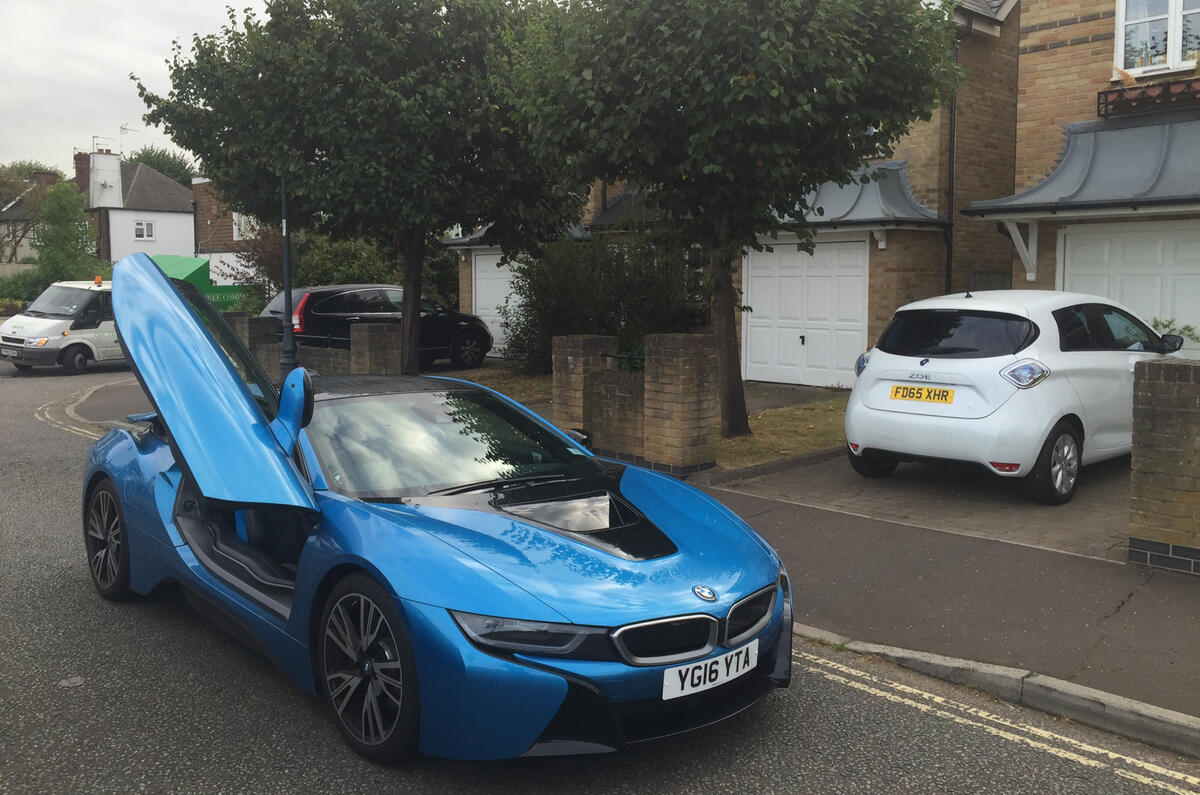When the Nissan Leaf blazed a trail in the electric car market, we were fed a lot of statistics about how a 100-mile range was enough for more than 75% of all journeys undertaken.
It was a well-sourced statistic that was repeated time and again as more and more car manufacturers launched electric vehicles.
And do you know what? In the case of the Holder family and its Renault Zoe, it’s true. In approaching a year of ownership, never have we had to use a public charging point, because not once have we done a round trip of more than about 60 miles. It helps that we are a two-car family and can therefore plan ahead on which powertrain we use, but most of the time we’re in or around the confines of the M25 and very happy with the electric range we have.
Yet with every generation of electric car, the range is creeping up, with the likes of Audi now saying that their research suggests that customers want 300 miles per charge before the will commit. I’m comparing apples with pears of course - what people want before they commit is not likely to be what they need, but I do wonder if many of us are going to pay a heavy price for the reassurance of this extra mileage.
The next-generation Zoe, widely rumoured to be being unveiled at next week’s Paris motor show, is expected to have a range closer to 200 miles than 100, for instance. So when we come to renew our lease, I’ll presumably face the choice of taking on a car with approximately three times more range than I need. Given the cost of the battery pack has long been cited as the reason electric cars are so expensive, I’m mildly miffed that I’ll be paying for something I’ll never use.
There will be compensations, of course. Very occasionally, we would be able to use a 200-mile Zoe on a journey where we simply wouldn’t now, and as technology progresses so good residual values (and therefore lease prices) will depend on having the latest car. There are alternative options for us, too: we could buy a current generation model second-hand, although the aforementioned residuals would be a concern. Finally, as an outside chance, perhaps we’ll one day get the option of leasing battery packs based on required range as opposed to required mileage.






Join the debate
Add your comment
Swiss Army Car
It's a pertinent question as each change in technology influences the way we choose the cars we drive. Choosing a gearbox for example will be, for many, dictated by circumstance.
A car can be a tool of mobility from point A to point B where it serves nothing but that purpose. We may not need to drive it, it merely needs the space, range, comfort, performance to achieve its purpose.
A car can also be an expression of freedom, to go anywhere whenever and however we want. The purpose is limited only by what the individual perceives 'anywhere' to be and what technology can offer.
The modern car is a balance of both. There is always excess because very few of us have a narrow purpose for the car we need/want. Excess space, size, functionality, performance are the norm.
A Hyundai i800 on a solo dash across Europe or commuting through London in a BAC Mono. Not their primary purpose but valid all the same.
As for your range requirements.
You have found a sweet spot, the Leaf fits your needs unusually well where excess is the norm. And you are right, greater range in your next car is likely to be less efficient for your current need.
I suggest you view each excess of your next car as an opportunity to expand your use of it.
@Jim
No
It is probably too much to ask for some journalistic integrity from a company that's taken to featuring click-bait "promoted stories" and adding video adverts that start playing without any input from the visitor.